Driftwood Poetry
Journal - Vol. 3
Poems by Will Davies, Liana Esau,
Blythe Hutchcroft, Chris Campanelli,
and Derek WittenPhotos by Tim Andries
I. Hidden Things
Will Davies
Low Tide
Mouldering gods, in ages past,
turned this sand with yellow nails.
Post and long-abandoned lintel lined
the beach in worshipful rows.Cruel tyrant gods, their monoliths
decaying across the sound:
black and rusted ruby hulks.
The tide is low, is long.And past the tide, a row of herons stands
as sentinel to our deserted vows.
With toes I test the pools and make my way
to that stretch of sand, the low tidelands.As I cross the midden of tides,
the ghosts of the holy books
scatter, gulls, age-feathered pages
torn loose to hang on the breeze.Fishermen stride to the West, picking
their steps like herons, as though they remembered,
as though they still possessed
the end of this tide, this brief time.Soon, they are driven toward the shore
by rising waves, and I am left on a bank of sand,
the sea swimming against my calves
and herons standing past my reach.The elder bird has spread its wings,
has seen some thing that I have not.
It turns and the wind lifts it,
as it must, as the tongue of the drake commands.Its long limbs slip through the waves.
It is speaking, in its peculiar tongue,
to the sentinel – neck bent against her
side in deference – posted out to the East.I should return, I should turn
towards the shore; I have strayed
too far, too long and great gods sleep,
shrouded in weeds, only so long.
The herons remind that we are
where we have been, walkers on forgotten
mausoleums to cruel gods, mouldering tyrants.
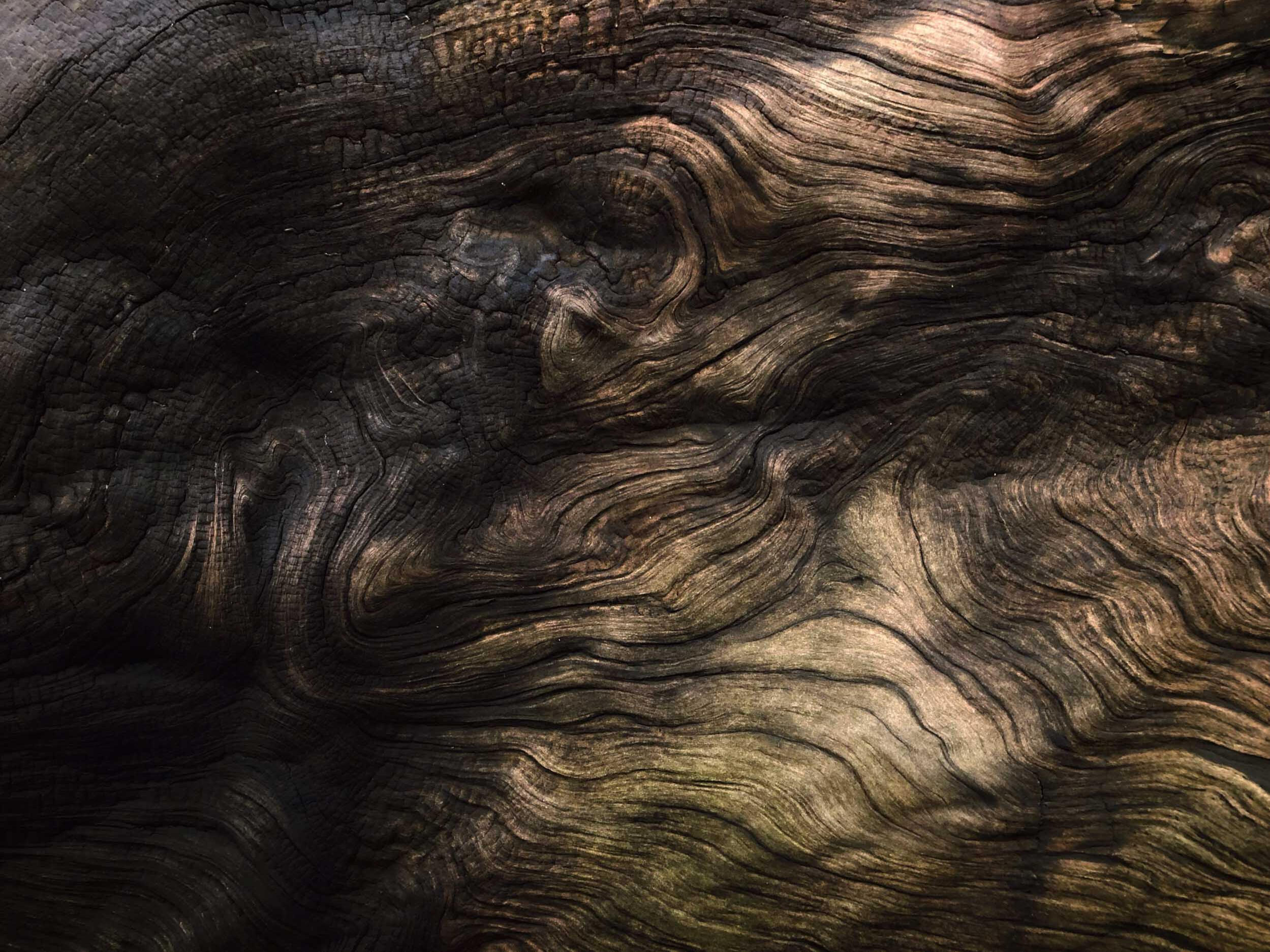
City
I skate my fingers across your skin,
like a city laid, whole cloth, before me.
Your veins are hidden electric wires,
pulsing with quiet messages.
Districts are marked with peaked basilicas;
I parse their upraised crosses.I shower the city streets
with a thundering storm of kisses,
smelling the earthy petrichor your skin
exudes. I am hungry to explore
every alley and suburb of your expanse.Who laid out your foundations?
Who planned your zoning, when shops would open,
or skyscrapers rise, like your lips to mine?
But left room for parks and forests,
left young weeping willows to shade
the river valley that runs between.Between us is only atmosphere.
I have come up from the ocean and I
wait for my spell to be broken.
Your breath is heavy against my neck,
and my lips are cool; I could stay
for weeks, if the weather stays this way.
Parallax
The earth parallaxes, vanishes
beneath its own horizon,
then rises in night-sky mountains,
leaving scarce space for fields of stratus.This space of ocean and sky is broken
by corners of continental shelves,
where dirt has collected, where
birds have nested and left their effluence,
moss and grasses invaded, then trees have risen
and crowded their corners with all that is living.Above those highest bastions of earth,
behemoths of cloud crawl on
short tendrils across the treetops.
On Mount Elphinstone they grasp
at small deer and frightened owls,
making their homes in pine and fir.And even these loom
high above my sight, for I
am a man in a world of giants;
ancient trees beset by storms,
and these resting on islands, yet
young beside the ocean, covering
the earth against which
my eyes parallax.
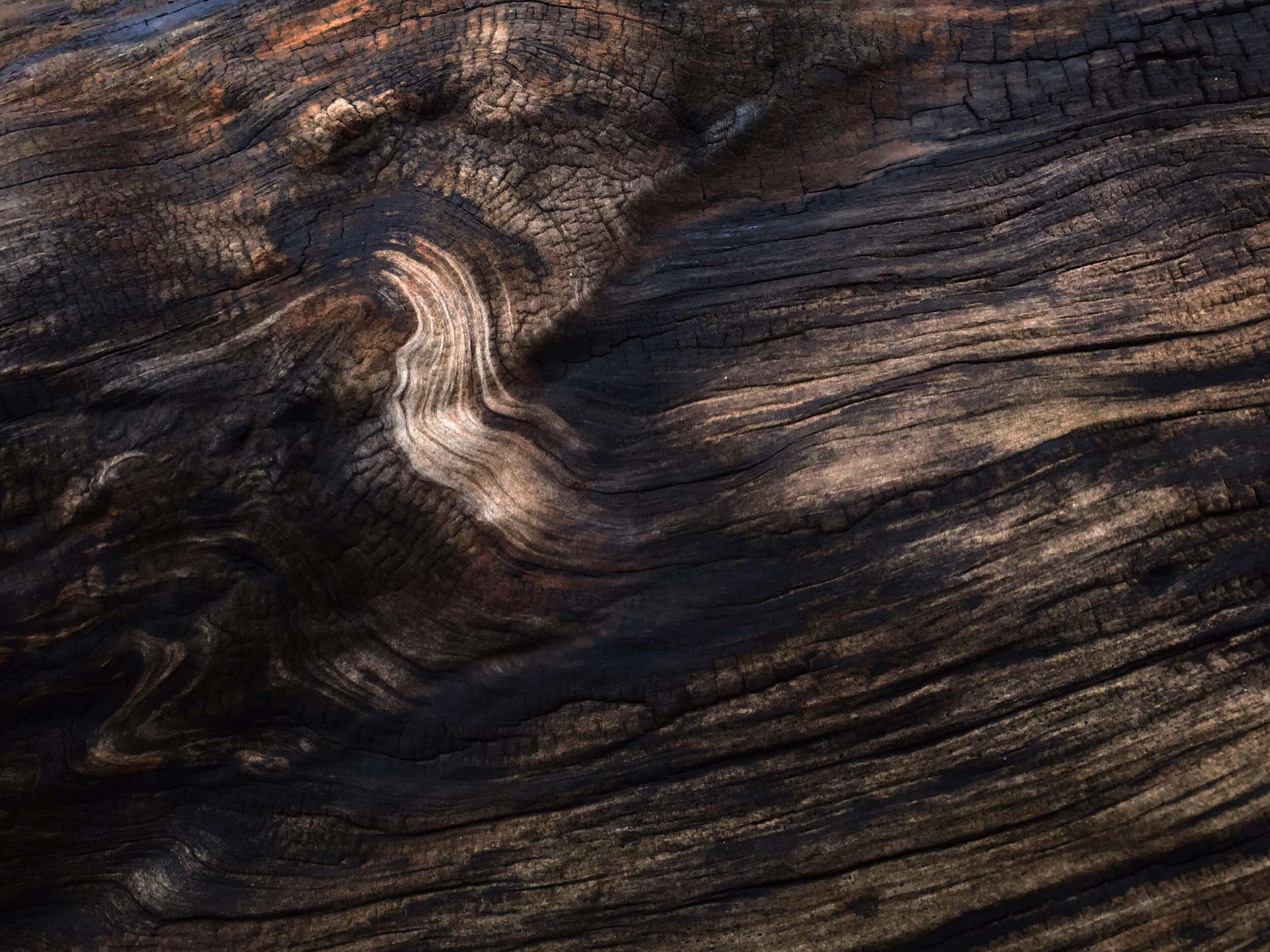
Rain on the Harbour
Out on the island, expiring alone, I was
choking on the scent of yellow cedar.
It gave me the chills, a fever, a feeling
that the trees were looking askance at me.I wanted to call you. I thought
that you might draw the poison out,
as you had done before, but I lay
silent, and watched the rain take the harbour over.I must have finally perished there, for,
upon returning, I have been wandering
through empty streets, reeling with
fragrant magnolia. It is three in the morning.Has nobody seen me?
Has no one seen my warm breath straying through the silence?I rest again and my body feels –
not refreshed – but empty of death.
My neighbours must be working already,
the birds must have flown early this year,
main roads lie empty, washed in light,
like five in the morning when bakers and
mailmen have yet to rise.No church bells chime, no wires hum.
The city is all on holiday.
No cars run like rivers in their canals,
mechanics stay locked in garages,
shopkeepers don’t stock their shelves.This is not a dream that I may merely wake from.
Birds will emerge eventually from cracks in walls
where they lodged, and voices will drift
from opening shops, busses will
run again. But the silence that you gave me
stays, like ink beat into my skin, like
rain falling across the harbour, out on the island
where I still lie, expiring.
II. Touch
Liana Esau
Procedure
The cardiologist needs
assistance so I pull on the long
sleeves of a barrier
gown and obscure
my hands, my face, my feet
with plastic and paper.To the right hand of the doctor
I am a tall shadow behind the sterile field.
My hand to hand
over whatever he asks,
in each stage
deliberate and precise.“A strange case here,”
he comments offhand,
“the leak of blood is suffocating this heart.”
His fingers point to the chest before us, draped
in blue cloth. And so
we begin with a little anesthetic,
then a great mess
of piercing.But it ends how it always does.A small needle
crescent moon in the hand
of the quilter, a deft
loop of silken thread, a curled
finger knots it
off to attach the
red drain.The doctor leaves and I stay after to wrap
the neat wound in translucent plastic:
The man with the heart opens
his eyes.And I am only ashamed when
I see
that he sees
two small splashes
of his blood on my right
thigh.
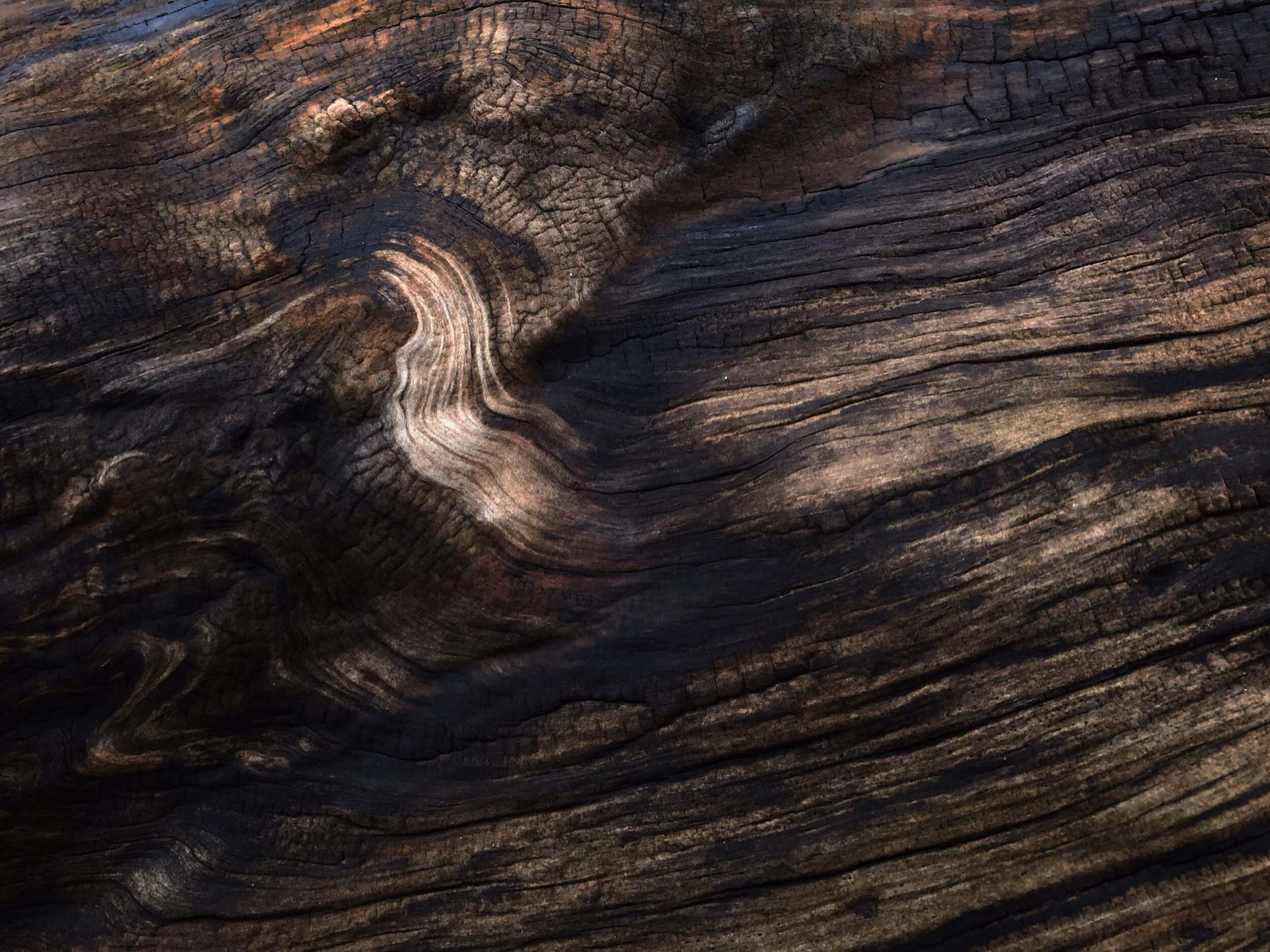
Witness
I.
This morning my eyes are deeplocked
on a whiteout sky. Prayer leaks like water
from my cupped hands—I hope
not to be afraid.This morning God is obvious
the snow is falling soft
over a long row of poplars
in parallel punctuation,
To whom shall you go?
By noon I give up hope.
We are all dying to do the right thing.II.
We met at a long table and they
asked what I brought to the table.
I’ve seen a lot of death, I said.
And that’s something, I suppose.I remember there was a low swung moon
in August, swear to God bigger
than my face and red as blood.
It was slowly losing ground to
the deep stubble of a cornfield.
I stopped the car, a blue heron was
bent, listening.III.
One morning God spoke to me
and said
and said
And that’s something, I suppose.When I blow out the wick of a candle
smoke curls into a language.
Now the snow rises above the window seam
the poplars are bowed, a whisper
Whose mouth do you feed?
Who do you love?
And the world is quiet for a long time.
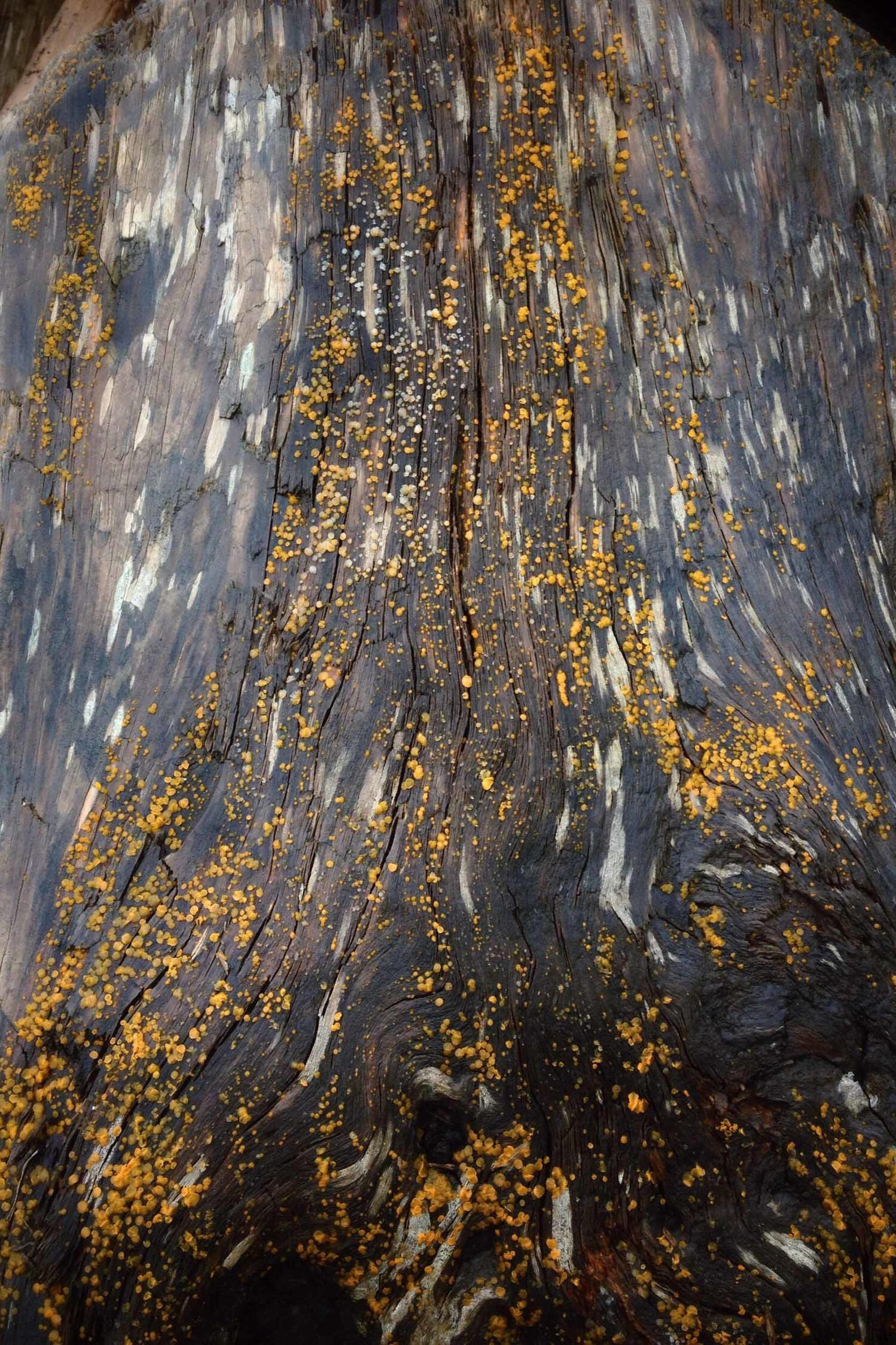
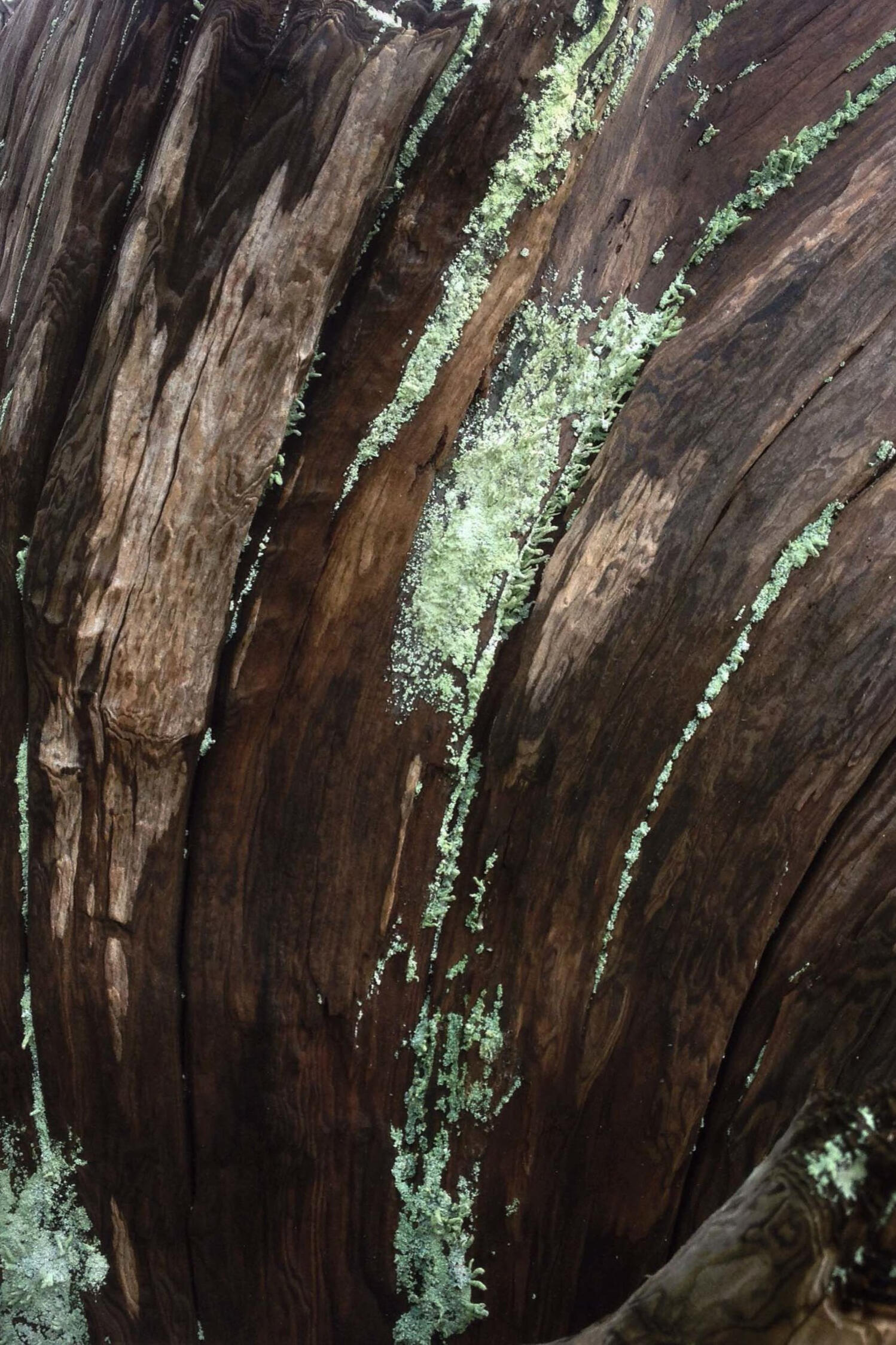
Host
I am coming
to learn out of my own
loneliness that
this strong cartilage
cording (meshing together our ribs
in lines
in lines,
sealing both breathing and beating
blood) is not meant to stay
knit-shut, butto open.
and in its shuddering, shuttering
we are necessarily
invaded,
this is our hospitality.Yet before there can be fear--
while I am still in the kitchen
thinking
about these things and adding
yeast to warm water--
and by the witness of the fruit
basket and the kneading bowl’s rounded
rim I am surprised to find
myself filling, not
emptying.
III. A Red Wing Rose
in the Darkness
Blythe Hutchcroft
FOR THE ARBUTUS TREE ON NORTH COVE ROAD, 1997
There was a chapel but I don’t remember what we said in it.
Instead, I remember the pancake coloured carpet,
the crack-slap of pellet rain on the hall’s tin roof,
how my limbs moved in the field.Here I glimpsed the shape of your name.
Here I sounded mine out, against a cracker on my tongue.While collecting spools of copper bark,
something untangled from within my frame:
a length of belly laughter,
my swimsuit-stomach flowering like a Jiffy Pop in flame.That summer something reached a fathom
for which we have no sign and crawled inside
my ribs to build its home. No clunky word
to contain that which it signified.
Just easy breath, a whisper’s bloom.I don’t know what draws us to the things we end up loving.
I do know that I buried treasure in those wide branches.
I was obliged, a tide stitched onto the warm rocks of her shore.
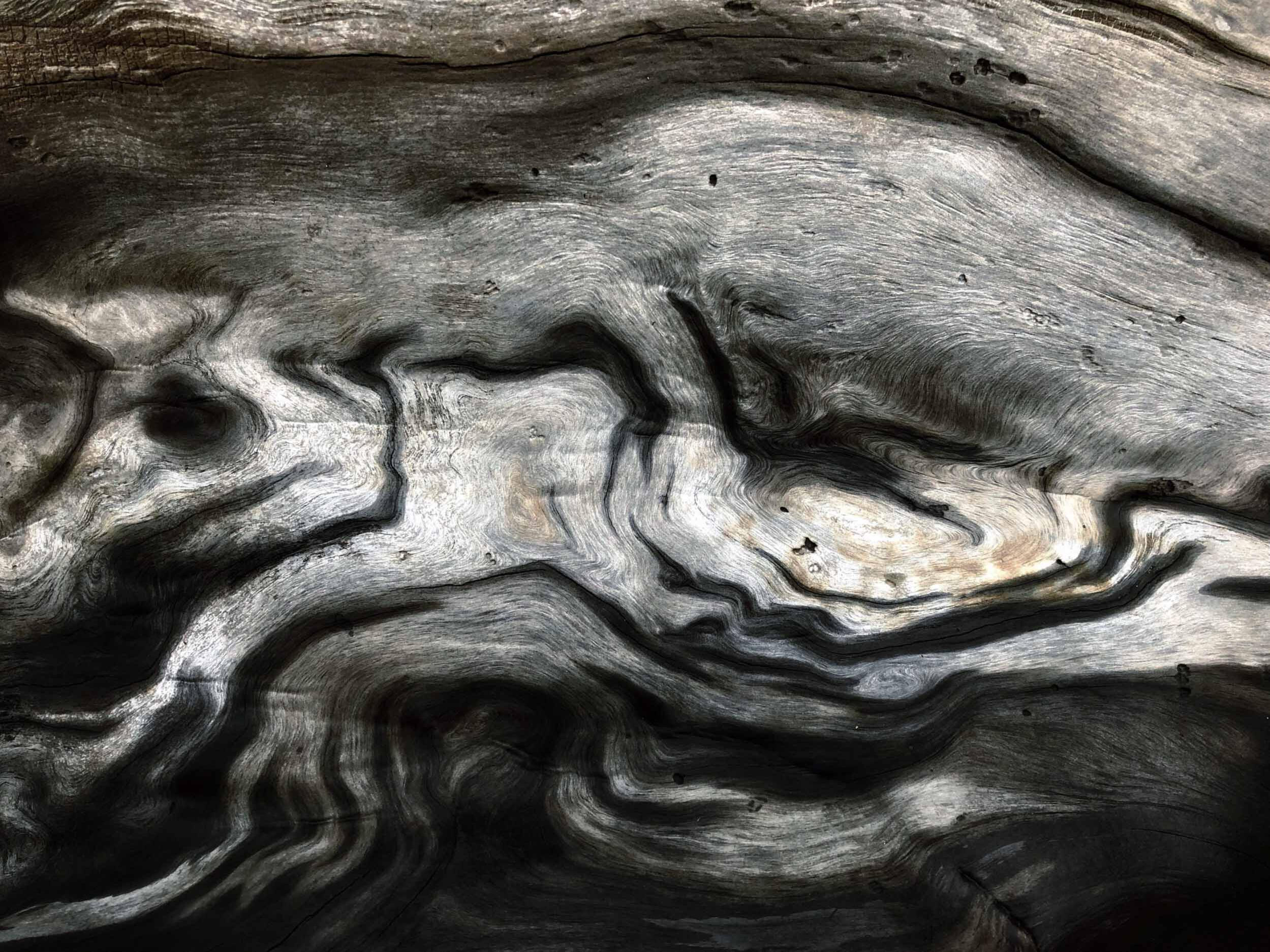
JESUS, ONCE MORE DEEPLY MOVED, CAME TO THE TOMB
1.
Mary fell at His feet on her brother’s behalf
as if to wipe them with her tears.Where were you, she cried on repeat.Was it a breach of His contract? The one
gift He swore to save for Himself,
moved by loss to share it?The stages of sorrow were on shuffle,
so Jesus chose denial
and wept.See how He loved him!Grief breathed on Lazarus
as Jesus said, “he’s only sleeping,”
and remembered he was dust.The one He loved came out like a scarecrow
to a crowd of expectant friends.
It was a race to see who could peel off
those strips of linen quickest.2.
And when it finally rains on Saint Catherine’s Street,
I think of Todd’s broad shoulders bending low.Damon mouths something but no sense arrives.He bikes to a Delta bayou,
sits next to a field of geese,
tries praying, plants a tree.Damon wonders if these are
the same geese who flew over his son’s body
on the Lions Gate bridge in May.Do they inquire after your sadness?One shuffles up, its long neck sweeping
like a branch of indoor plant
and blinks as if to say,
“There was nothing we could do.”Our friend is dust and soot,
mixing with the dirt at Fred Gingell park.
He was raised as a Japanese maple.
His new small hands left us wanting more.3.
There was no account of Lazarus’s second death,
someone tells me, so we wonder if he’s hiding
in some unmapped forest in Russia
modifying his hobbies until we all catch up.Oh, and when we do!Ashes will return to ashes like old friends
who have been apart too long.
FEBRUARY
1.
I did not wake up thinking of your body,
or your mother’s grief that rattled through
the phone as her thick sorrow failed to clarifywho had jumped and where and why.
Instead I woke up pawing through old
boxes piled high and wondered which oneheld my whisks, and whether or not we had any milk.
It wasn’t until later—much later,
thumbing pomegranate rind that afternoon—that I remembered my own small grief.
Rinsing garnet seeds, little clusters of
your sadness, I imagine the fall—that your contorted landing failed to parallel your
tone, which always signified poise, ease.
I imagine your soft body, rearranged likesome outstretched Adam reaching for its source.
Over time, I think, if we had left you there, your
skin might thicken, not unlike this rind, to encase
your broken bones like hollow, treasured gifts,
and when we find and pick you up, a rail of peanut brittle,
you rattle with mementos of your own Adamic loss.2.
Even though I did not wake up thinking of your body,
which is not at the service today,
I think I started to understand why
people want to be scattered in the graves
of their young hope. Like Powell River,
the summer we were both thirteen and
ripe with the urge of all things. Do you remember how
we clambered in your row boat, thick-thumbed with desire,
to take turns pulling each other in sunned tires
crudely fastened to the stern? When this game failed
we ran inside, heaving fistfuls of blackberries
on the counter for your mother, saying,
“That did not work. Can we make a pie?”3.
Eleven years later you tell her to “Pick up
the milk. I fed the dog.” That was your
last gift to her—a feigned sense of security—
as you, pulling weight from your shoulders,
plunge from one absence to another.
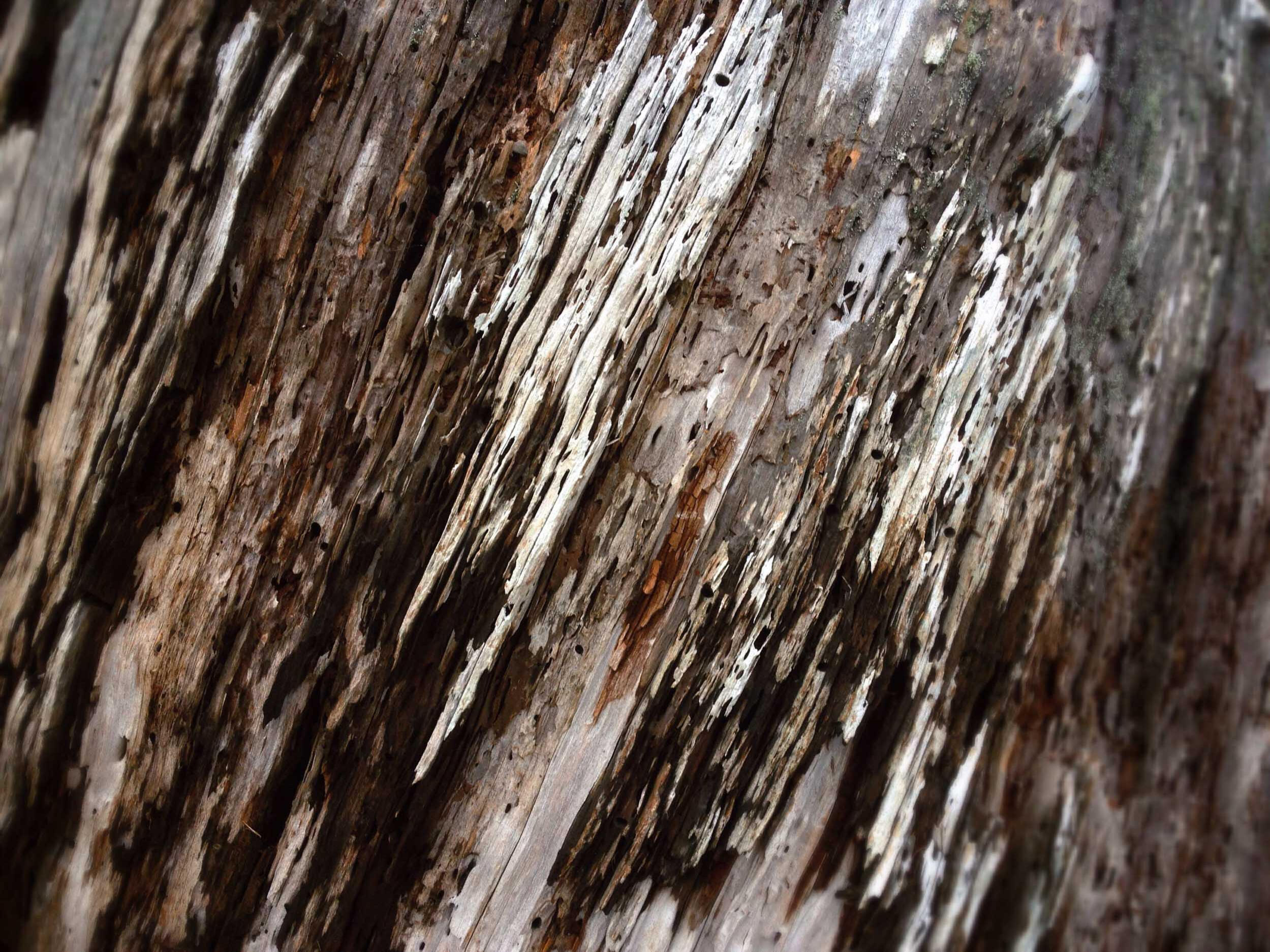
ON GRIEF
Yours snuck in
through the kitchen window—
the one we clambered out of, spilling onto
the warm stucco of your roof.
We could sit for hours, watching
small-town rush hour wade
through honeyed, heavy light.Your mind flitted like a whiskey jack that night
as you wondered out loud
about the nature of being wrong.Our legs, splayed like a pair of sandbox kids,
didn’t notice the gravel as it gathered itself
onto the backs of our knees.
My body sank into the palm of dusk
but yours darted inside to do the dishes,
sifting through regret stored up as stacks of hay
in some far away barn.I’m sorry for what I didn’t say.
I was distracted by the animals our shadows made
in the muffled light of new summer.What I should have said is this:
may grace trump our long-held belief
that someone is keeping score.
May your sadness run out of steam and collapse.
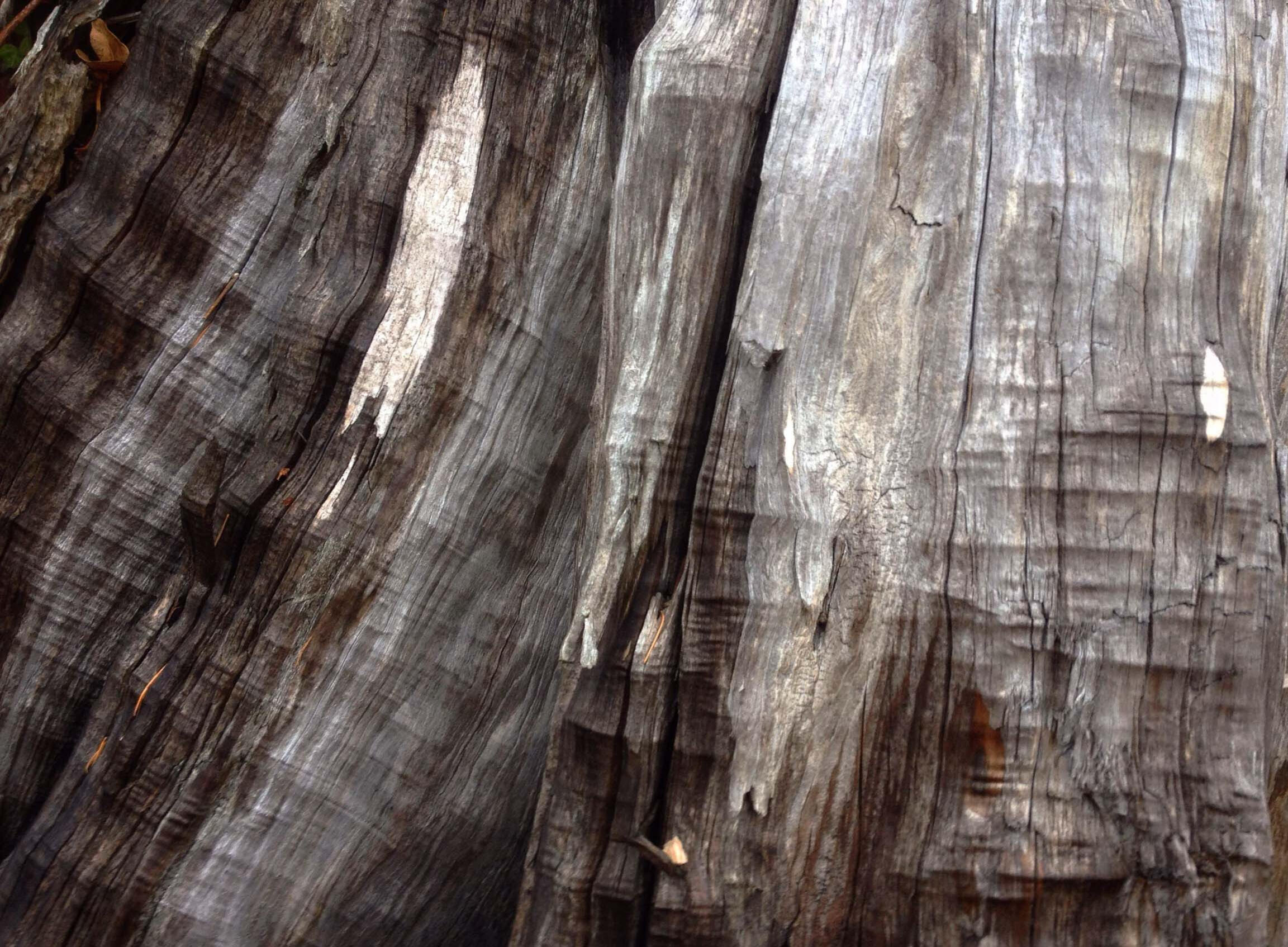
MOUNTAIN
Bright cloud,
I am the bride of my unknowing of you.
A listening skin,
breathed bones,
I clunk
at my own saying.
To be sure
I did not recognize you,
luminous as the blue edge of what I see.But be near.See, I have set the table for you.
I have poured you a glass of water. I am
preparing a place for you preparing
a place for me.
Come,
I have built you a shelter.
IV. Beautitudes
Chris Campanelli
An April Morning Missed
The sun would shine its
mid-morning rays across me,
nine years old, alone,
and stretched out on the
plush blue carpet floor.I used to lay long in that spot,
look up, and in the dust motes drifting,
recognize the very pulp of heaven--
angels’ fast descending--
and stay until light on my skin
suffused me with its soaring calm.That same light comes each year, although
that window and its house were razed.
That sun today shines on a door
I keep shut to construct my praise.
To The Measure
For T.C.When I walked in I knew it was the end.
An oxygen mask covered up your mouth.
Your body jerked upwards to take each breath,
each stark intrusion on your slump toward silence.
Then suddenly that struggle when your breathing
quickened, beeps sped up to trills, the nurse
rushed in to see you as you turned a purple-
red from head to toe, contorted, arched back
stayed there for a stunning fifteen seconds
until phlegm and blood welled from your lungs and gushed
into your mask. Your body’s self-defence
was what displaced your breath, and so your life:
an innate will to live which did not yield,
till it had filled your body to the measure.
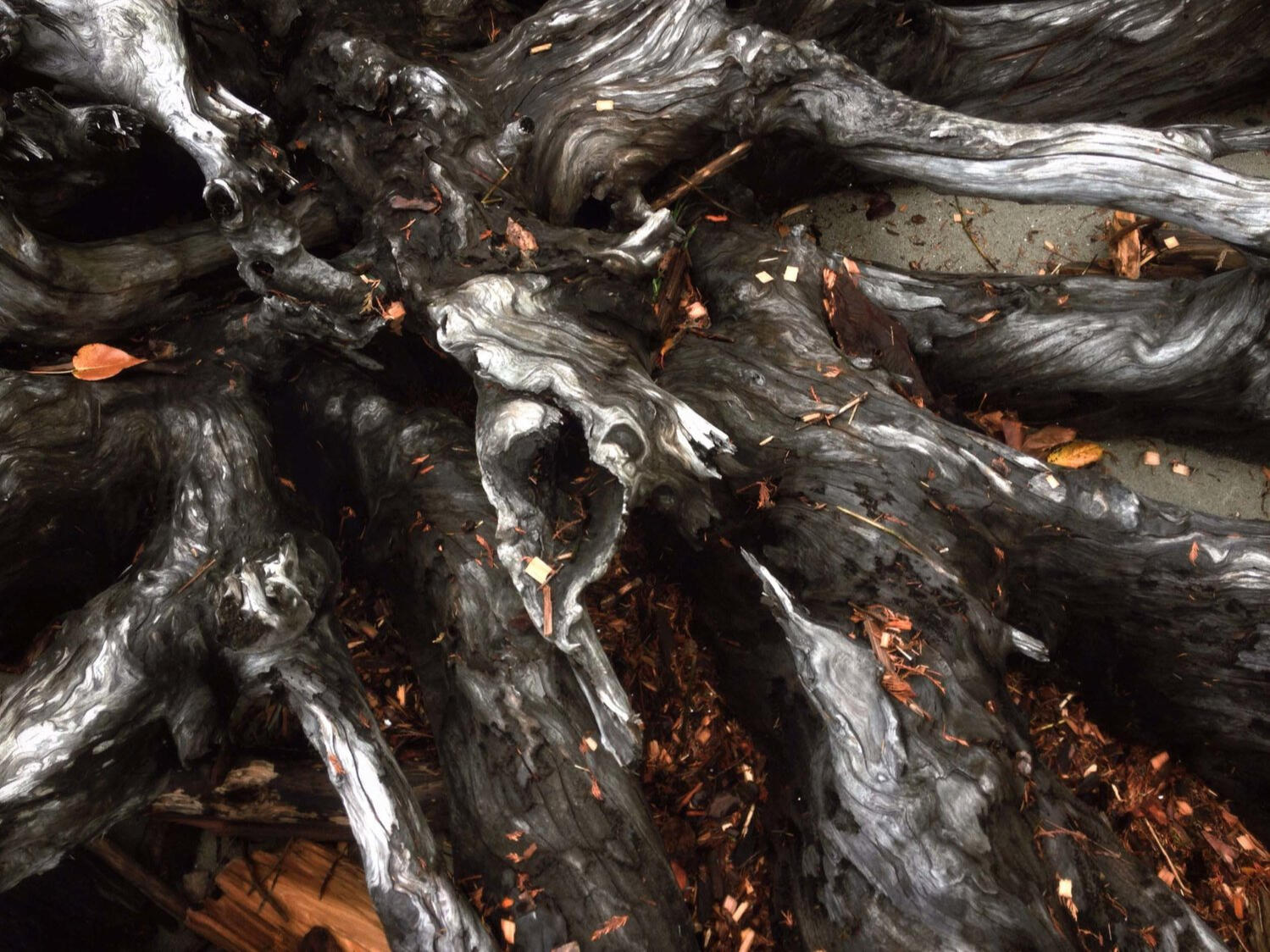
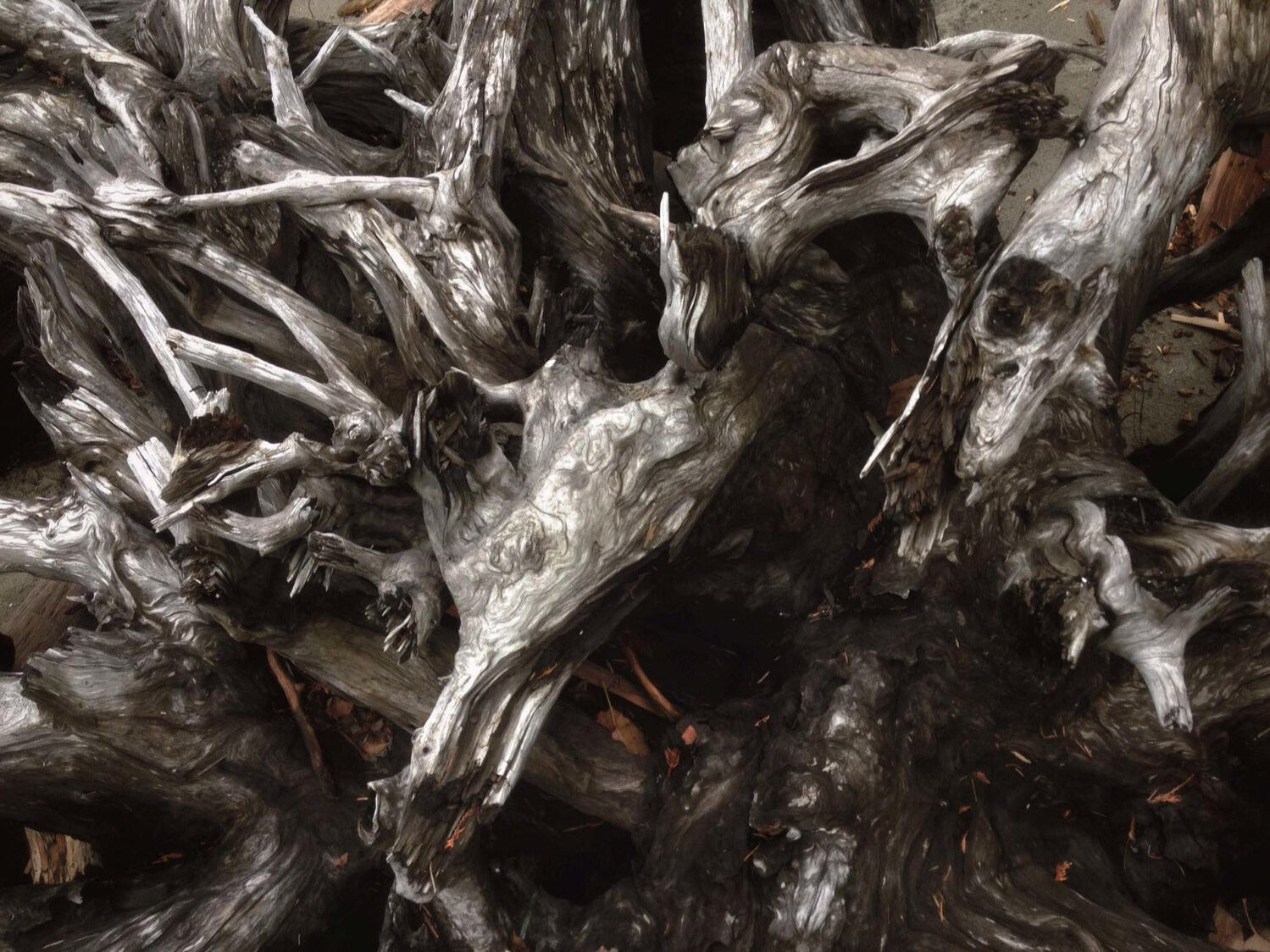
Struggle
i.
I am a soul,
I have a body.I am a body,
I have a soul.I am a self,
I have a body, have a soul, have a spirit,
for that matter have a mind.I’ve sold myself upon the notion that
this overwhelming question needs an answer,
but I start to wonder now
if it can ever be sussed out,for I want to nod agreement to the
aforementioned definitionsbut I find they stir in me an argument
between my soul, body, and spirit,
as to who has the rights to define.I live, then, as an argument,
which likely will not be resolved
and must await arraignment on my day of death.
Our day of death.And still it remains up to me
to make arrangements
for that final day of rest,
so what should I expect?My body will be silent in its wooden bed,
the velvet inches from my
breathless mouth,
my then unthinking head—
spiritless, listless,
and (finally) selfless.Will my soul hover there above?
Will it remain dormant within?
Or else will it ascend
till all times end,
awaiting when it can
descend with heaven’s host,
and join again my lifeless frame
as it is called out from the ground
at the triumphant trumpets’ sound?Or will that be the day I’ll find that
I was only body after all?
(Except there’ll be no I to find that out).I think I cannot know yet what I am.ii.
Still, I must play a role upon this stage.The sages warn this role should not be co-opted
by any brittle code or written rule,
because only a living role contains
the power to make a scattered person whole.Such roles can make you free
precisely as they free you up from
needing always to be right.For even if a playwright writes to
reckon with the hubristic woe of striving up against
ones predetermined fate,
the actor,
for a fleeting moment,
when his spirits rise within the contours
of his fiction-freedom will discover there a fittingness,
a flaring at an unknown edge--
the flash of his own possibility.
Such acts actualize a mystery.I play and write these roles therefore
to free myself from what I lose
to the abyss of needing to be right.iii.
Sometimes though, I write to keep
from playing a role, or being a self,
and try to bury play within a careful turn of phrase,only to find the drama shines out plainly
when I have to test if these phrases of mine
are true.To do that, I must see that what I say
for me could just as well be said for you;the drama is what happens when I
struggle for a rhyme between us two.To put in words a sight in which I am
a mirrored you requires a raid uponthe unseen in the seen. My
self, my
soul, my
body, mind, my
heart, all of it’scaught up in one action, as I play
a Jacob, wrestling an unnamed manbeside an ancient ever-flowing stream.
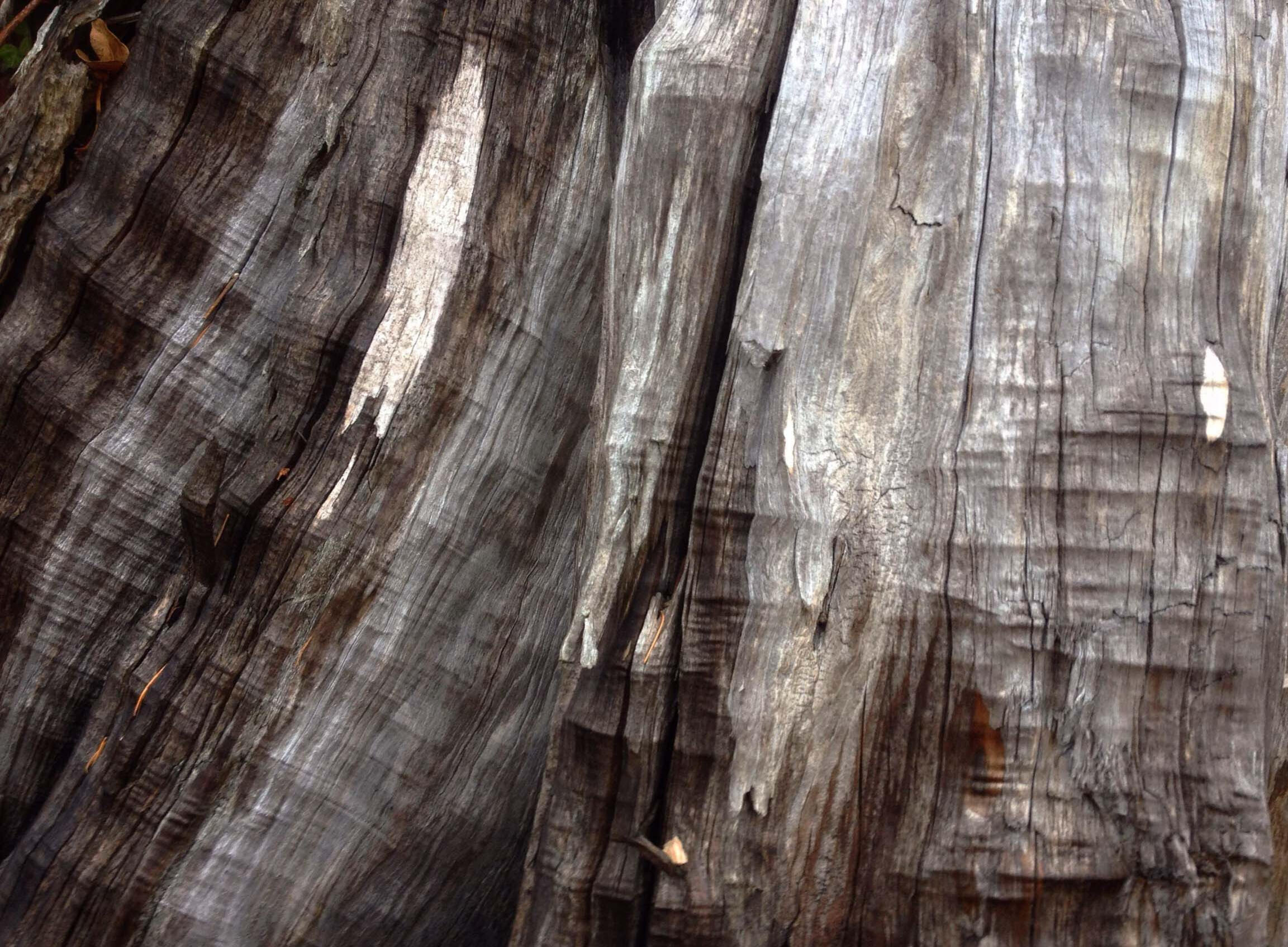
An Aaronic Blessing
What is it in the human face that sends
these shivers trilling through her tiny frame,
and beaming through her cheeks, her eyes, her chin,
like water pooling in a curve of stone?
How does this one who has no words, who is
just lately gathered out of nothingness,
read happiness so readily and have
an instinct to respond in kind to us?
Do cheekbones speak? What words do eyes declare?
Or are these the primary means of speech?
From what I see, her mother’s glanced-goodwill
is gathered in and returned to its source,
as if the act of looking on someone
manifests a power of response.
V. Sound Ladder
Derek Witten
Acreage
April late the harrowing and sowing;
by the belly of June the sandhill
cranes arrived. Biking downwith Dad to get a better look,
we watched their slender shapes against
the soft-green shoots of early barley.Strange birds, their bobbing forward
heads at every step, their barn-red
ball-caps and divided call, a rustygate hinged into a strident trill
sounding several sections off.
The racket proving insufficientto unsheathe the swelling kernel of the prairie,
there is no splintered echo, just a fade
and silent, rising germination.That night, the window cracked, I’m wrapped
and warm within a single sheet,
and listening to the thunder growfrom guttural churn to perfect certainty--
the cranes’ calls deepened and magnified
from resting on the fertile air.(Acreage was first published in Crux, Summer 2015, Vol. 51, No. 2)
Sound Ladder
Here the clouds spend shapeless days dealing
winter’s portions with a teacher’s hand.
Strange to see them coming drunk and muscularthis afternoon above the campus library.
They bear me back across the Rockies, back
to boyhood, the uncomplicated disappointmentof a canceled game. The rain comes gusted
like blown silk, turning the shale from sunpink
Spanish tile to maroon, while parents shuffleoff the bleachers, coats over their heads:
seal up the bag of sunflower seeds, hurried
sips of whiskey from the travel mugs.Let us play. But back to the Astro van,
cleats on gravel, bats and helmets clink
in time with coach’s step. Before the slidingdoor has shut we hear the game begin
without us: wind-rush through the batting helmet,
the leather, wrapped and stitched, resounding offaluminum, the sound shimmering
off every rattled particle of sky.
Someone must have thrown a silent pitch.
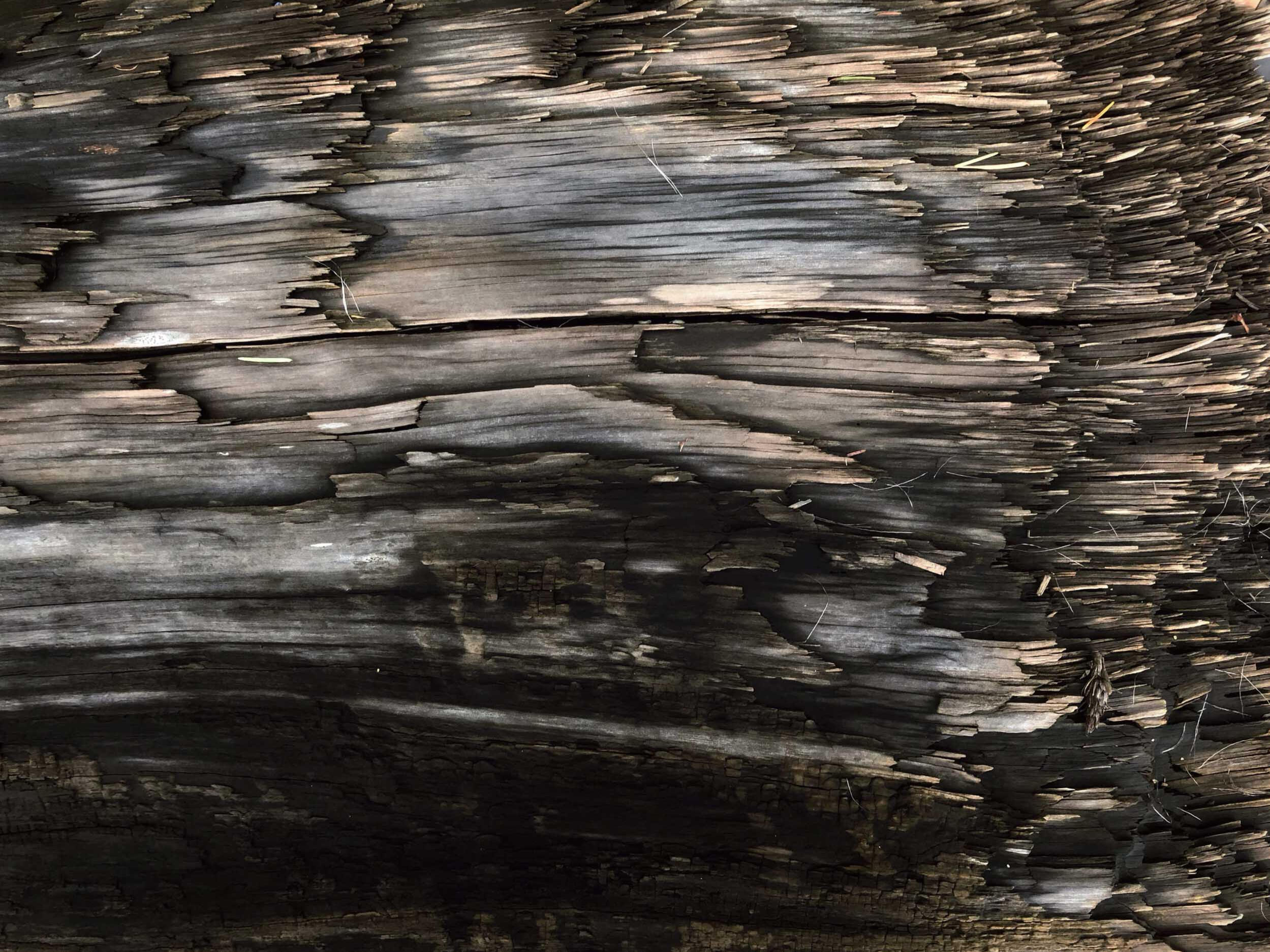
Wing Light
Our pilot on the intercom:
“I’ll be turning off the North wing’s lightso you can see the lights
behind it.” Rising thumbs push off reading lights.
so I suspect they bow like me
against the cool oval.Aurora borealis—apparent stillness
in slow shaping,finding again a cracked
and hidden faculty in me.Have I forgotten the online checkbox
Where all these airport strangersMust have clicked assent?
“natural phenomenafor which you will revoke
your right to basic airline safety.”I admit there could
have been a clause, sunk
deep within the terms and conditions.Either way the expectedness of it all
was as arresting as the lights:it’s a rare bird but its migration is familiar.
Night in the Rockies
David Thompson Highway headed west,
as navy swells into the crow-black sky
and gradual hills break and jut immensely.I pluck a shiny pinion of the fleeing dark,
and sense the sheltered revels of the night,
when clouds wound down through pineson mountain banks to waltz slow
and ghostly on the robin-egg shell of
Abram Lake; when Mount Assiniboinebecame a Ktunaxa arrowhead
aimed skyward, back pulled flush against
the ridgeline, taut and searching,each night let fly at star-tipped
Mista Muskwa on his sky-line run,
restrung before the bald sun came
and wrestled shadows back to shape.
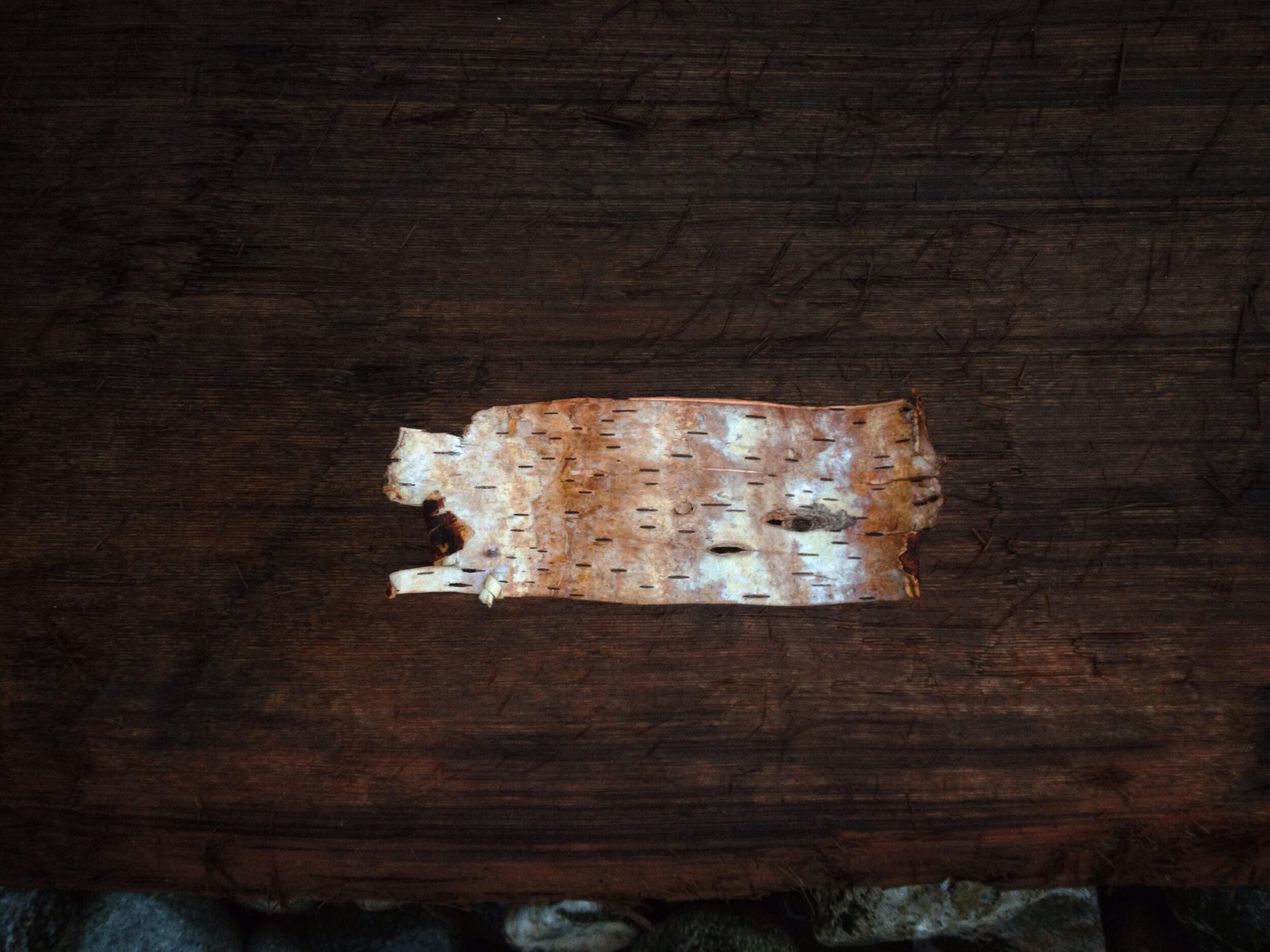
Driftwood Poetry
Journal - Vol. 2
Poems by Katrina Murphy, Natalie McNeill,
and Megan DrevetsPhotos by Kat Grabowski
Driftwood Poetry
Journal - Vol. 1
Poems by Cameron Reed, Derek Witten,
Christoph Sanz and Will DaviesPhotos by Tim Andries